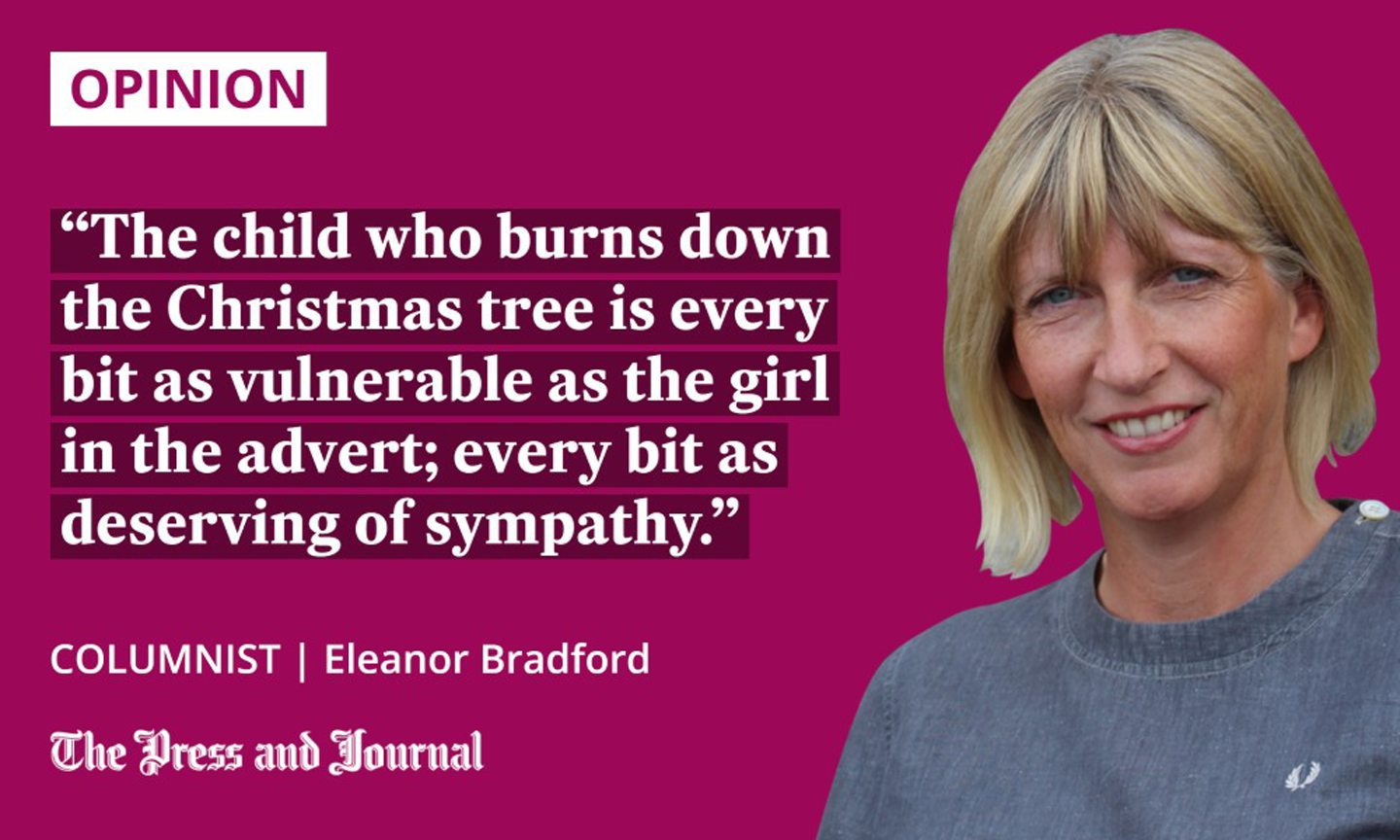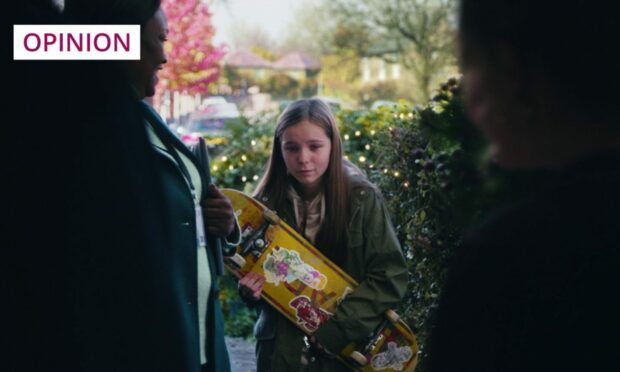This year’s John Lewis Christmas tearjerker brings a lump to the throat, but does it really help kids in foster care? Adopter and former foster carer Eleanor Bradford doesn’t think so.
We need to talk about the new John Lewis advert.
This year, the retailer wants to achieve more than just sales. Its advert features a man persevering with an attempt to learn how to skateboard.
Spoiler alert: he is risking life and limb so that he will be able to connect with a foster child – a keen skateboarder. She arrives with her social worker, looking vulnerable and scared, a skateboard one of her only possessions. Heart-rending music throughout.

The advert’s aim is to highlight the fact that more than 100,000 children will be in care this Christmas.
The ad brought a tear to my eye, as it was designed to do. But, then, my reaction was: “Mmmmmm.”
I went onto a couple of online adoption forums and found others had the same response. More than one adoptive parent had posted that John Lewis has missed out the bit where the child then burns down the Christmas tree.
Fostering needs much more than just kindness
What has this advert about fostering got to do with adoption?
It plays to a stereotypical image of the care system, which causes endless problems for adopters like me. It is the palatable image of children in care. The vulnerable, sweet child, the kind carers who find a way to make everything better.
Unfortunately, it’s just not that simple. Kindness is not enough. The child who burns down the Christmas tree is every bit as vulnerable as the girl in the advert; every bit as deserving of sympathy, although probably not quite so cute.
Looking after these children involves resilience, specialist training, an understanding of therapeutic techniques, financial resources (one parent will probably have to give up work), endless patience, and very comprehensive home insurance. There are no quick wins when you are parenting traumatised children.
Carers need more support
Some children are so emotionally affected that they simply cannot live in any homely environment. And, when they reject it, through confrontation, violence, arson, criminality and more, their carers find themselves abandoned by state authorities, who offer no support, no respite and no training.
Perceptions are shaped by the very stereotypes that this advert reinforces. They assume the adopter was just not kind enough
To make matters worse, those around the child – teachers, social workers or doctors – often have no real understanding of these complex issues. Their perceptions are shaped by the very stereotypes that this advert reinforces. They assume the adopter was just not kind enough.
“The reason this is so triggering is because we all felt like this when we set out on our adoption journey,” said one typical adopter on one forum. Another said: “This video was shared by my local authority adoption agency – the same one that disappears when you ask for help.”
Let’s prepare future foster carers and adopters for reality
As a former respite foster carer, I know that this advert skips over the full story for that community, too. I am not the first columnist to point this out, with The Times’s Janice Turner noting that employment conditions for foster carers are appalling.
A new survey by the Fostering Network suggests 70% are now considering giving up. Even more sobering for us was the letter we received after quitting, warning us that one in seven foster carers face allegations of child abuse from a former child in their care, and urging us to pay for legal insurance to protect ourselves.
The broken system is not John Lewis’s fault, of course. It could be argued that this campaign will generate much-needed funds for agencies who can provide more support. Although, in our nine years as adopters and two years as respite foster carers, we never got any help from the particular Scottish charity reaping the benefits of this campaign – quite the opposite, in fact.
We have had excellent support from other charities, most notably Adoption UK Scotland. We could have done with much more, if only there had been funding available to provide it.
John Lewis, sorry to be so bah humbug. I do appreciate your willingness to highlight the problem
If a more realistic portrayal of children in the care system would put some people off being carers, it would only be those who wouldn’t have coped anyway. Other prospective foster carers and adopters would be better prepared and, most importantly, would have a better chance of success due to greater understanding around them.
John Lewis, it’s time for episode two
John Lewis, sorry to be so bah humbug. I do appreciate your willingness to highlight the problem. You have shone a light on the opening scene of the care journey.
The next scene might show what Christmas looks like for many care-experienced children.
It has no presents and no tinsel, not because their carers are cruel, but because these children cannot cope with the sensory overload and feelings of excitement and expectation that come with Christmas. I can introduce you to many adoptive families who have to tell their children everything they’re getting for Christmas well in advance.
This reality deserves our sympathy every bit as much as the other version. A more realistic ad would do wonders in terms of increasing understanding around the families struggling to cope with incredibly challenging behaviour.
John Lewis, when you sit down in January to plan next Christmas, the adoption community would love to help you write episode two.
Eleanor Bradford is a former BBC Scotland health correspondent and now works in communications in the education sector



Conversation